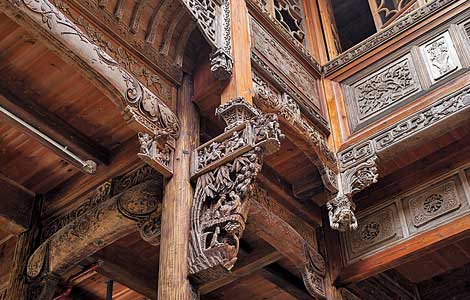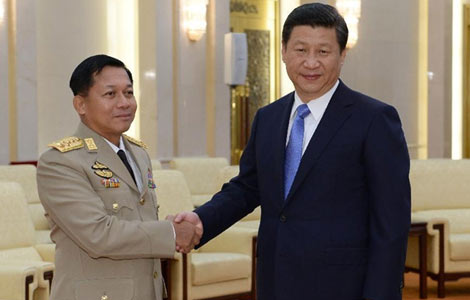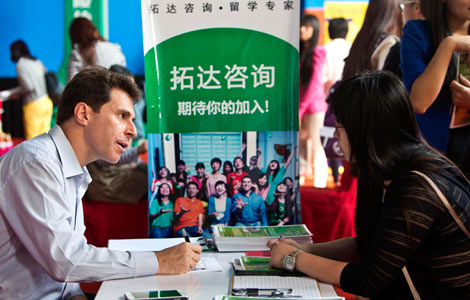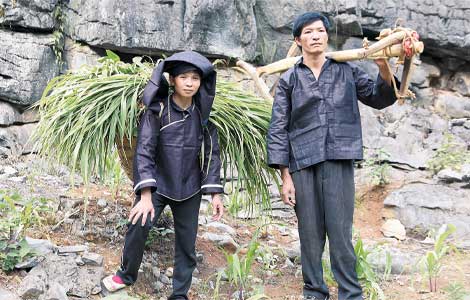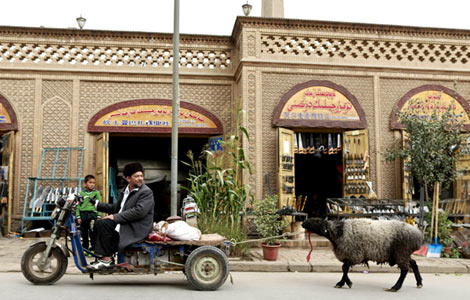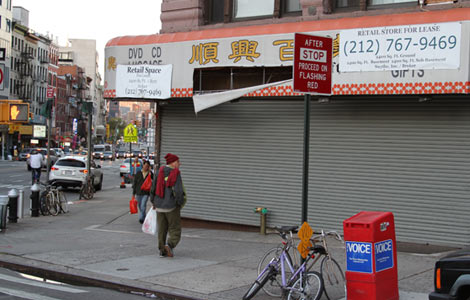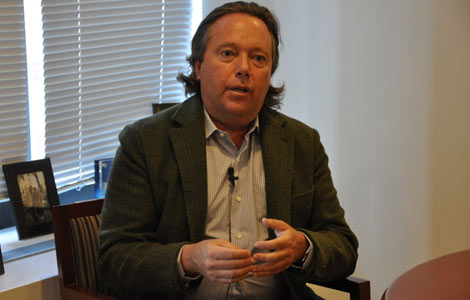Alcoa CEO to be feted by US-China Committee
Updated: 2013-10-16 05:12
By MICHAEL BARRIS in New York (China Daily USA)
|
||||||||
Alcoa Inc remains "committed" to being part of "China's growth story" even as it battles problems in the global aluminum market, its chairman and CEO said.
Klaus Kleinfeld, who will be honored on Wednesday at the annual dinner of the National Committee on US-China Relations for his support of "constructive US-China relations", said Alcoa has invested more than $800 million in China since 1993, becoming the Chinese aluminum industry's "largest foreign investor".
Alcoa "has been and remains as committed as ever to being part of China's growth story", Kleinfeld said in a statement released to China Daily. He noted that Alcoa founder Charles Martin Hall established the Harvard-Yenching Institute in 1928 to "bridge understanding between Eastern and Western cultures by supporting educational scholarships between the US and China".
The committee said on its website that the New York City-based aluminum producer's "long term investments and philanthropy in China have helped strengthen" US-China relations.
With facilities in Beijing, Shanghai and Suzhou, Alcoa has "created breakthrough technologies and focused on strengthening communities and sustainable growth for 125 years," earning it such accolades as "Top Green Company in China" and one of the "Multinational Companies with Contribution to Public Welfare in China", the website said.
Kleinfeld said Alcoa is "open to exploring opportunities abroad with Chinese partners, which would further help minimize the domestic environmental impact of the industry." To date, it has partnered with China Power Investment and signed a cooperation agreement with Commercial Aircraft Corp of China. The company also operates a wheel production facility in Suzhou.
Commenting on Chinese Premier Li Keqiang's call for an economic "upgrade" in China, Kleinfeld observed that while China's rapid growth during the last 30 years has "lifted hundreds of millions of Chinese out of poverty, built world-class cities, and fostered globally competitive businesses", it also has left China with "structural challenges and environmental degradation." Alcoa, he said, sees "opportunities as China upgrades".
The committee's gala dinner also will salute IMAX Corp CEO Richard Gelfond for his role in "expanding the modern movie-going experience", according to the US-China committee's website. China is IMAX's fastest-growing and second-largest market in the world.
Alcoa's top executive is being feted as the company – seen as an economic bellwether – battles changing worldwide market conditions. Despite Alcoa's high profile due to aluminum's broad use in numerous industries, in September it was cut from the Dow Jones Industrial Average, after it had become by far the smallest company in the widely watched index of 30 blue-chip stocks.
Reflecting its status as a Wall Street heavyweight, it traditionally is the first company in the Standard and Poor's 500 index each quarter to report earnings.
Last week, Alcoa posted stronger than expected profit, as improved performance and productivity gains helped offset a nearly 50 percent drop in aluminum prices since their peak of $3,380 per ton in July 2008.
The company raised its outlook for global aluminum demand for the heavy truck and trailer market to between 5 percent and 9 percent this year from 3 percent to 8 percent, citing improvements in Europe and China.
Amid the tough market, the company said in May that it would review 460,000 tonnes, or about 11 percent, of its smelting capacity, for possible cuts. Later that month it announced closures at its Baie-Comeau smelter in Quebec. In August it curtailed production in Brazil and permanently shut down part of its operations in New York.
Kleinfeld, commenting on aluminum industry overcapacity in China, told China Daily in September that "China and the rest of the world operate as two separate aluminum markets. The Chinese aluminum market is largely self-contained, producing enough aluminum to meet its own needs and therefore not exporting."
Although he said China's aluminum supply and demand is "essentially in balance", the executive said Alcoa estimates that 41 percent of China's smelting capacity is unprofitable because of low aluminum prices and the high cost of the system". The Chinese government was taking steps to curb overcapacity, he said, "but it is not easy to decommission large, complex facilities".
Kleinfeld told China Daily that as the company strives to remain competitive globally amid its price and demand challenges, it is focusing "on higher-cost facilities and plants that have long-term risk due to energy costs or regulatory uncertainties".
At the same time, Alcoa has "invested in low-cost capacity such as our Saudi Arabia joint venture project, implemented cost reductions in our operations and made continued productivity improvements at all of our smelters," Kleinfeld said.
In the first half of this year, most of Alcoa's revenue came from supplying high-tech aluminum products to the aerospace and automobile industries, Kleinfeld said. "Global demand for aluminum across our end markets – including aerospace, auto, building and construction and industrial gas turbines – continues to grow, year after year, and Alcoa is well positioned to meet that demand", the CEO said.
michaelbarris@chinadailyusa.com
Most Viewed
Editor's Picks

|

|

|

|

|

|
Today's Top News
China's US debt holdings in doubt
Yuan gains the most in 20 years
Tibet avalanche claims 4
First interprovince subway route opens
US expert finds job 'rewarding'
China has record number of rich
Govt shutdown takes toll on ties with Beijing
Mexico demands US response over spying scandal
US Weekly

|

|
